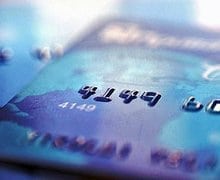Health plans will have to accommodate households without traditional bank accounts
At the urging of advocates for low-income consumers, the Obama administration said Wednesday that it is moving ahead with a rule requiring health plans accommodate households that do not have traditional bank accounts. One in four of the uninsured eligible for federal insurance subsidies does not have a bank account, according to a report released earlier this year by the tax preparation firm Jackson Hewitt.
The report dubbed people without connections to traditional banks the “unbanked.” It estimated that 8.5 million people without health coverage would have difficulty getting tax credits to help them buy insurance on the new, online marketplaces if health plans barred certain payment methods, including cashier’s checks, money orders and prepaid debit cards that have gained popularity with low-income households.
The final rule, issued under the health law, requires insurance companies accept as payments in the individual market “paper checks, cashier’s checks, money orders, replenishable pre-paid debit cards, electronic funds transfer from a bank account, and an automatic deduction from a credit or debit card.” Health plans will not be forced to accept cash, which federal officials deemed too burdensome.
State-based exchanges could partner with financial service companies, administration officials said, but the rule does not limit those partnerships to non-profit organizations that promise low transaction fees as some advocates had championed. The federally run exchanges will not, the government said, partner with any payment services firms in the initial year of operation, but it did not rule out arrangements in the future.
The ruling did not satisfy all the concerns of tax preparation companies that see a role for themselves in aiding low- and middle-income families that are eligible for tax credits. Brian Haile, senior vice president for health policy at Jackson Hewitt said he was concerned that the final rule did not specify that health plans need to accept automatic, reoccurring deductions from credit or debit cards, and that consumers who miss several payments could find their coverage dropped.
“Consumers will face tax penalties for being uninsured under the recently released IRS rules about the individual mandate—and we should be making every effort to help consumers avoid those penalties and maintain coverage,” he said.
From Kaiser Health News





